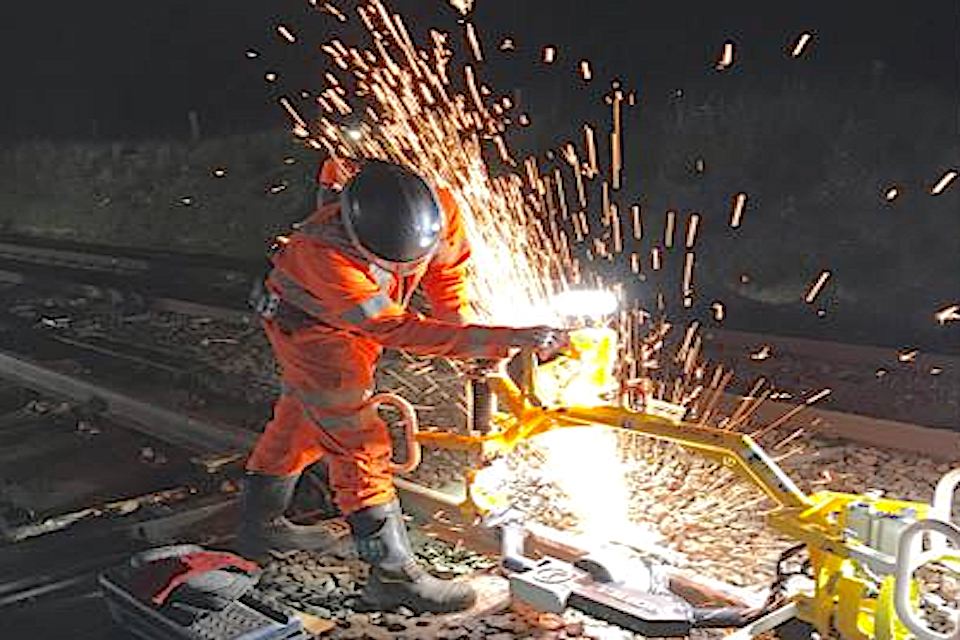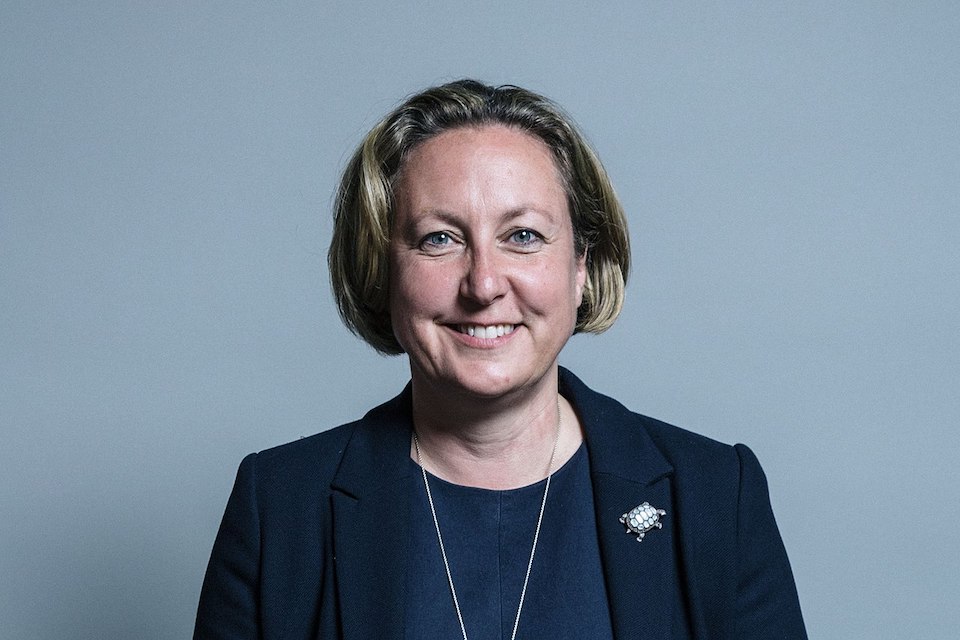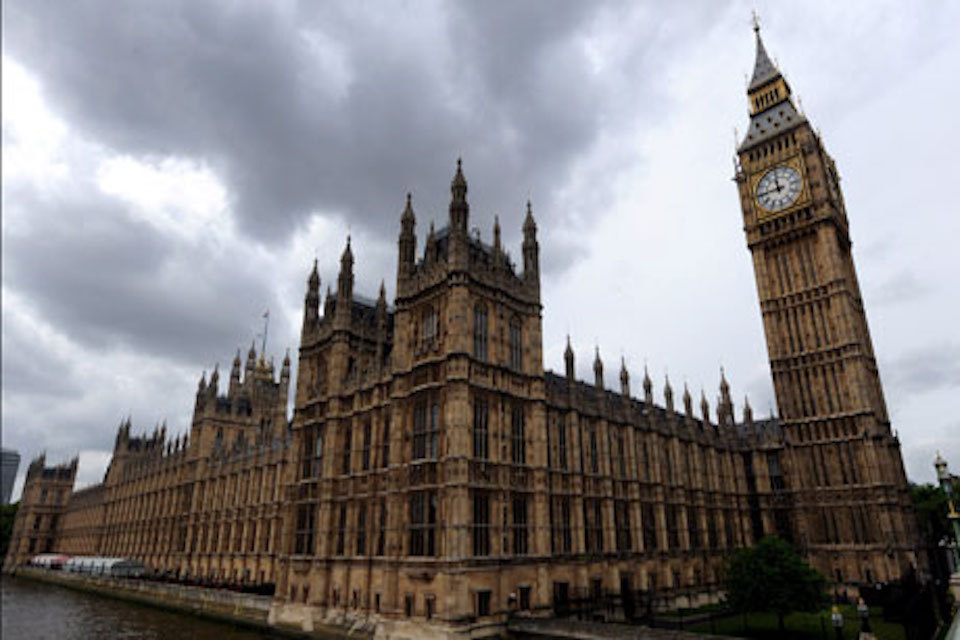UK transport policy in meltdown

Never mind the prime ministerial resignation. GBR could be scrapped. Strikes could be outlawed. Such is the febrile level of disarray in the UK government that not one, but two major transport policies, both worthy of the front pages, have slipped by with hardly a mention. The danger is that one policy could derail management and infrastructure, and the other could inflame the already bitter rail disputes. The headlines that have not yet been written could place Great British Railways on the scrapheap and make industrial action on transport networks an illegal act.
It has already been a long week in politics in the UK, and there’s still no sleep at the Palace of Westminster. The prime minister’s threadbare hold on to her office finally snapped; the home secretary resigned; there was nothing short of a barroom brawl in the House of Commons; a former transport secretary was appointed to the Cabinet; and the Russians tried to shoot down the RAF. It may be forgivable that the trifling matters of cancelling the launch of the flagship Great British Railways reform, and the potential outlawing of strike action across the entire transport sector, failed to take centre stage.
Bill to outlaw all out strike action
It is generally regarded as the apex opportunity to make a public proclamation of government policy. So, when the recently appointed transport secretary Anne-Marie Trevelyan took to the BBC airwaves at eight o’clock on Thursday morning, major announcements were anticipated.
However, almost the entirety of the fifteen-minute interview was taken up with defending the now ex-prime minister, and the faltering state of the ruling Conservative party. Astonishingly, no mention was made of her appearance in front of the parliamentary transport committee the previous afternoon, at which Trevelyan admitted that the Great British Railways project was on hold. Furthermore, the minister was not challenged on an almost throwaway remark that she would immediately introduce a bill to impose a ‘minimum service level agreement’ on UK transport networks, effectively limiting strike action.
Railways ditched for e-bikes and pavement parking
The Transport Select Committee is a cross-party body that examines all matters relating to the sector. Appearing in front of it is a chastening experience for any politician. At Wednesday’s sitting, the transport secretary, who is also the member of Parliamant for the East Coast destination of Berwick, nervously admitted that the parliamentary bill to ratify the formation of the new overarching management agency Great British Railways, has been delayed until at least next May.

Huw Merriman, the chair of the committee, closely questioned the minister on the delay in introducing the bill for debate in the parliament. “There are a whole series of things that are being prioritised”, said Trevelyan. “It isn’t only the Commons, but the Lords that have a huge schedule as well”, she said, reasoning that the parliamentary programme had forced at least a six-month delay on the bill. She did, however, offer that some “small legislation” may be introduced … “on e-bikes or pavement parking.”
Widespread disruption to planning
The mainstream media may have overlooked the affairs of the committee on this occasion, but not so the industry. The statement by the minister has raised concern that the whole GBR project may be dropped. Given the precarious state of the government, there is real concern that the present administration will not last long enough to enact the legislation.

Always swift to respond, the Railway Industry Association, which represents the front line of the supply chain, urged the industry to work together regardless of any legislative delay. “As the government itself has said, the railway needs a clear strategic direction, and GBR was to be the mechanism to deliver this”, said their statement. “For the rail supply sector, there is now a real concern that this delay will lead to a hiatus in work, hitting confidence. This adds to the lack of clarity, given there is also uncertainty over long-term funding, enhancement schemes and major rail projects too.” The RIA has also written to the chancellor of the exchequer, expressing their concerns.
Red rag to bullish unions
However, that RIA letter was delivered on Thursday morning, before the transport secretary appeared on the BBC’s flagship news programme, “Today”. In that interview, Trevelyan was questioned closely on the state of party politics but was, uncharacteristically for the programme, allowed off the hook on her select committee appearance the day before – despite her bombshell statement on the GBR delay and possible ditching. Her throwaway remarks on policy regarding e-bikes and pavement parking would normally have been questioned, given the high level of public anger on both subjects.

Even more astonishing, given the programme’s close attention to the matter, the transport secretary was not pressed on her remarks regarding her intention to introduce an even more divisive policy on Thursday. She said it was her intention to introduce a bill immediately to limit the legality of strike action on the transport network, including the railways, and enforce a ‘minimum service level’ in times fo industrial dispute. This is nothing short of a red rag to the bull of the trades unions, and their reaction is expected to be angry in the extreme. The largest of those unions, the RMT, has already announced a further round of strikes early in November. The other main unions involved in rail disputes have also responded with a uniform condemnation of the proposed bill, calling it unworkable.
Proposed legislation does not work
“We know that this Tory government is determined to try to make industrial action ineffective” said an angry Mick Whelan, the general secretary of ASLEF, the train drivers’ union. “The train companies don’t want to run minimum service levels because they know it’s a stupid idea. What happens when 100 per cent of passengers try to get on 40 per cent minimum service level trains?And the rolling stock will, next day, be in the wrong place. Which will mess up the normal timetable.”
The government claims that similar legislation exists in other European countries, such as Germany, France, Italy, and Spain. “What the government doesn’t know, or doesn’t choose to say, is that it is not enforced”, said Whelan. “They know it doesn’t work. Of course, every individual in our free society has the right not to cross a picket line, and no new law can – or should – force people to break their conscience.
Caveats and opportunities
There is a British saying that a week is a long time in politics. At the rate of change in the current establishment, readers reaching the end of this report are advised to check that the named parties are still in the office noted when they read the headline.
If still in office, the recently dismissed former transport secretary Grant Shapps, who lent his name to the review that proposed the GBR reform, has traded in his hoodie for a sober suit, and has been appointed Home Secretary … for now.
**UK businesses can soon share their stories in a full-colour digital magazine tailored to the UK rail industry. The RailFreight UK Christmas Special will be published on 15 December. Details, including how to take part, can be found here.
You just read one of our premium articles free of charge
Want full access? Take advantage of our exclusive offer





As well, for all, “our” hemisphere of Atlantic, infrastructure of UK matters – very much!
(Regardless of Brexit, Goal of “Union”, shall remain!)
Basics among port success stories, globally is nearness, to a big and growing Hinterland, which indeed here is present…
With a proper goal, now decided at UK Parliament, the “island” can turn the dynamic hub of Region and …